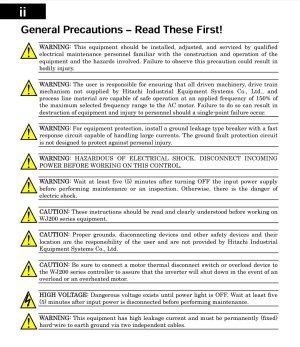DPittman
Ultra Member
I haven't done a YouTube video search yet as I figured I'd start here first.
I'm going to be moving my milling machine and drill press soon both of which have vfds on them. I'm going to have to dk some rewiring for them in the new location. I just remembered that the capacitors of the vfds apparently can store lethal energy in them after being disconnected.
Does unplugging the units and then trying to power on the machinery drain the stored capacitor energy?
I'm going to be moving my milling machine and drill press soon both of which have vfds on them. I'm going to have to dk some rewiring for them in the new location. I just remembered that the capacitors of the vfds apparently can store lethal energy in them after being disconnected.
Does unplugging the units and then trying to power on the machinery drain the stored capacitor energy?

